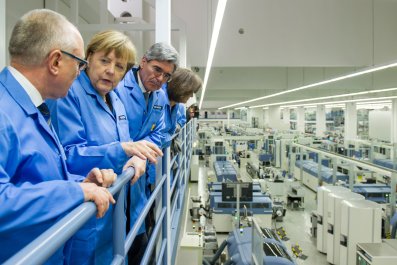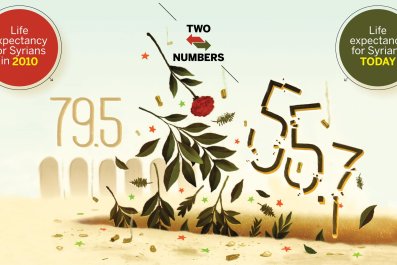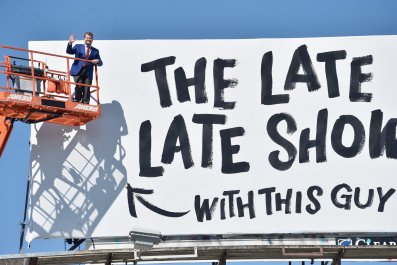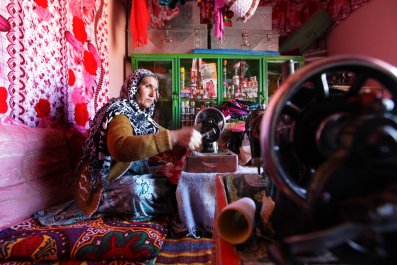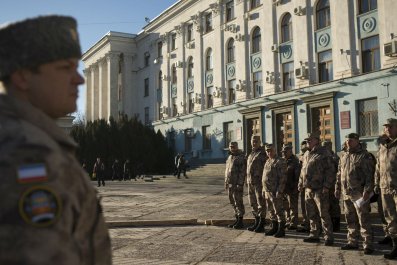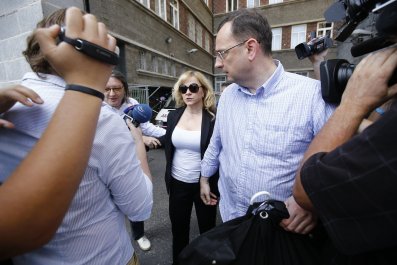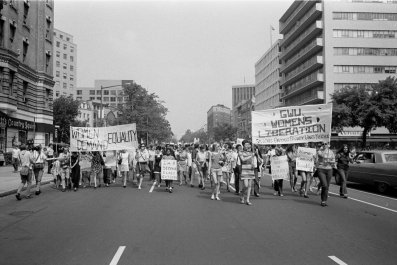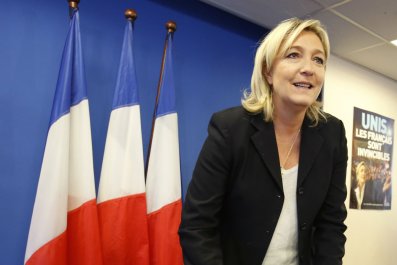In 2008, when the global economy cratered, Lola Sánchez Caldentey lost her job teaching at a public school in her native Murcia, a small city in southeastern Spain. She also lost her faith in the future. She was 28 years old.
With unemployment in the country at Weimar Republic levels, Sánchez had unwillingly joined Spain's "lost generation"—smart, educated 20-somethings with sad prospects for a decent job. Like many of her peers, she decided she had no choice but to leave the country, traveling first to Iceland, where she taught Spanish, and then Scotland, where she found work as a waitress. She even tried the United States, waiting tables at a Mexican restaurant. After each stint abroad, she came home in search of a better job, to no avail. "I couldn't have a family, buy a house, buy a car," she says. "This crisis hasn't let me go on with my life."
Last spring, Sánchez was listening to a radio program when she heard an interview with Pablo Iglesias Turrión, a ponytailed political science professor who—along with other faculty members at Complutense University in Madrid—had launched a new political party. They called it Podemos ("We can"), and promised to defibrillate the flatlining Spanish economy and radically remake the government. Hearing the professor revived hopes Sánchez had all but abandoned.
Iglesias, 36, was inspiring people across Spain, especially among the country's opportunity-deprived youth. He urged his burgeoning flock to form political circulos (circles)—tightly knit activist networks that could broaden his movement and mobilize voters. These networks created a powerful base, and even as the party grew in size and sophistication, its members felt as if they had a say. The circulos galvanized frustrated Spaniards in an unprecedented way. In 2011, tens of thousands took to the streets in protests against corruption, joblessness and big cuts in public services. But just as Occupy Wall Street fizzled in the U.S., these Indignados failed to transform their anger into something more substantial. For Sánchez and many others, Podemos was a new reason to believe. "I felt like this was the time to join something to change Spain," she said. "Not just for my generation, but for the future."
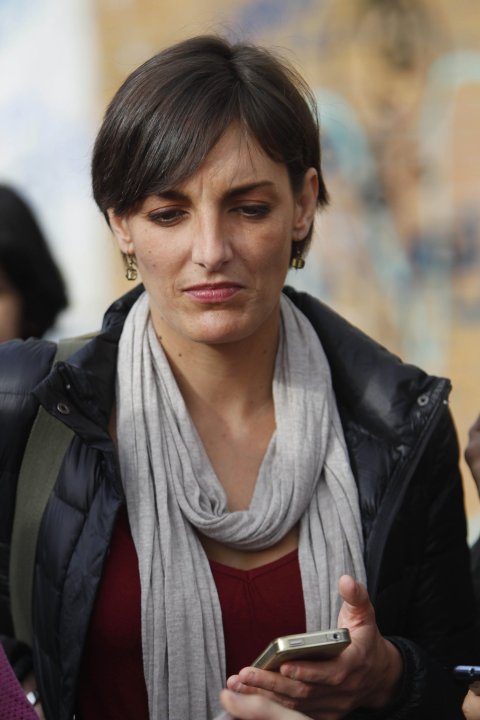
Propelled by the same grassroots fervor that carried Barack Obama to the White House in 2008, Sánchez started a circulo in Murcia. The group began as just a few people meeting for coffee, but before long it grew, and this out-of-work teacher became a local leader. Last spring, members of her circle encouraged her to run for office, and she agreed. In May 2014, Sánchez won a seat in the European Parliament, along with four other members of Podemos (including Iglesias, the party's general secretary). The victories were stunning. Six months before, Podemos didn't even exist. Now this group of upstarts had garnered 1.2 million votes, 8 percent of the total turnout. "It was a huge surprise," Sánchez told me in a telephone interview last month. "In the morning I was a waitress. By nightfall, I was a member of parliament. "
The Next Mini-Revolution
Spain's economy has barely begun to recover from the recession. Economic growth resumed here only last year, the unemployment rate remains at 23 percent (the second highest in Europe, behind Greece), and the national debt is at $1.2 trillion, a level most economists say is dangerous and unsustainable. So it's of little surprise that Podemos is surging. Recent polls indicate the party is now Spain's most popular political force. In January, 100,000 of its supporters gathered in Madrid for the country's largest anti-austerity demonstration in years. If national elections were held today, polls say Iglesias would become the nation's next prime minister.
Two years ago, his rise would have been unthinkable—like a Ron Paul presidency in the U.S. Spain's two largest political groups—the governing (and conservative) People's Party and the Socialists—seemed to have a lock on power, and few predicted this sudden upheaval. In hindsight it makes sense, especially after January's surprise victory by Greece's populist Syriza party. Populism is in vogue throughout Europe, thanks in part to economies that have failed to help many of those who need it most.
Podemos is positioned to spark the continent's next mini-revolution, and its leaders have some bold economic proposals. Among them: raising the minimum wage, creating a maximum wage, lowering the retirement age, implementing a 35-hour workweek, ending tax havens and E.U. border controls, nationalizing utilities and banks bailed out by public funds after the crisis and even a proposal to ban layoffs for companies turning a profit. None of the party's top officials agreed to speak to Newsweek for this article, but in public forums they've made their agenda clear. They want to organize the country's left, wrench power from the political class and redistribute Spain's wealth to the masses.
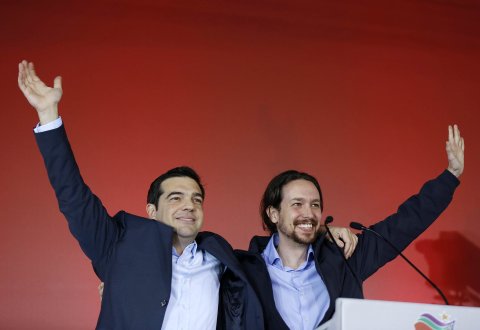
There's nothing new about these ideas, and for the most part they should be easy for Spain's left to rally around. Iglesias is a young, gifted orator, and the whole ponytail, scruffy beard thing makes him seem like the type of guy you'd want to have a beer with. In speeches and interviews, he comes across as a genuine outsider, the kind of politician who had no choice but to abandon the comforts of his academic chair and take his country back from its corrupt overlords.
Yet some liberals are suspicious of Iglesias and his party. They worry Podemos's ties to the socialist government in Venezuela belie an authoritarian streak. In recent months, Iglesias has attempted to broaden his appeal, and some in his base have begun to suspect that his true motive is less about the power to change and more about power for its own sake. The party's success may depend on its ability to close the distance between its base of Indignados, who favor grassroots decision making, and more mainstream populists who prefer a more centralized, change-from-within approach. "Supporters of Podemos are mainly disaffected citizens who distrust political parties and institutions," Guillermo Cordero Garcia, a political science professor at the University of Pompeu Fabra in Barcelona, told me last month. "This fact makes them skeptical about even Podemos."
Sánchez dismisses her party's critics. Podemos is real, she says, and soon people will see that this is not a party of empty promises. "We are only common people doing extraordinary things," she told me. "We did all of this with our own money, euro by euro."
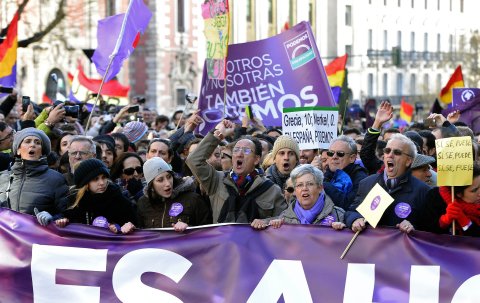
A Tattoo of Defeat
Born in Madrid in 1978, Pablo Iglesias Turrión was named after Pablo Iglesias Posse, the 19th century father of Spanish socialism. His mother was a trade union lawyer, his father a labor inspector and history professor. Iglesias has been active in politics since he was a teenager, when he joined Spain's Communist Youth Union. He earned degrees in law and political science, and holds a master's degree in communication from the European Graduate School in Switzerland, where he studied political theory, cinema and psychoanalysis.
But Iglesias is no ordinary academic. For years he's moderated two political talk shows, which is why he's very comfortable in front of a camera. He's also comfortable playing the underdog. "I have defeat tattooed on my DNA," he said in a debate last year. "My great-uncle was shot dead. My grandfather was given the death sentence and spent five years in jail. My grandmothers suffered the humiliation of those defeated in the [Spanish] Civil War. My father was put in jail. My mother was politically active in the underground."
His narrative is that of humble teacher turned reluctant pol. In reality, Iglesias is a savvy, calculating leader who has spent years plotting. Podemos's circulos are a case study in how to build grassroots support, and the party's focus on Spain's corrupt elite is textbook populism.
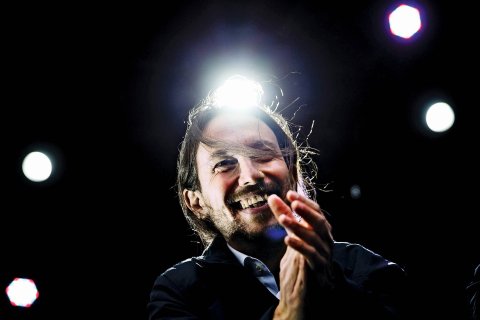
So far, his strategy seems to be working. Voters often use European parliamentary elections as a way to express frustration, and its legislators don't have much real influence in governing a country like Spain. Still, last May was a huge victory for Podemos: The day after its electoral earthquake, Socialist leader Alfredo Pérez Rubalcaba announced he would step down from his party's leadership post. A week later, King Juan Carlos agreed to abdicate his throne.
A Charming Demagogue?
Iglesias and his supporters have eight months before they get a crack at the Spanish parliament, and there's a sizable contingent of skeptics to convert. Berni Vila Pou is the second person I spoke to about Podemos after moving to Barcelona in January. (The first was my yoga teacher, who couldn't remember Iglesias's name; she called him "the long-haired guy.") Vila is 25 and works at a bank. He leans left and agrees with much of the Podemos platform, but won't vote for the party this fall. Over a couple of Tinto de veranos on a recent evening, I grilled him about why. Vila is a native Catalan, and like many from this part of eastern Spain, he wants Catalonia to become independent. Part of what he doesn't like about Podemos and Iglesias is that they've waffled over secession.
Yet Vila and others I spoke with—both in Catalonia and elsewhere around the country—insist their biggest problem with Podemos is the people behind the party. Many on the Spanish left say Iglesias and company are too vague about how they will pay for their programs and accomplish their agenda—especially when it comes to the country's huge debt. In a speech last month, Mariano Rajoy, the country's prime minister, warned that Podemos offers only "confusion, quirky ideas and internal fighting," and advised Spaniards not to "gamble away our children's future on a Russian roulette of frivolity, incompetence and populism."
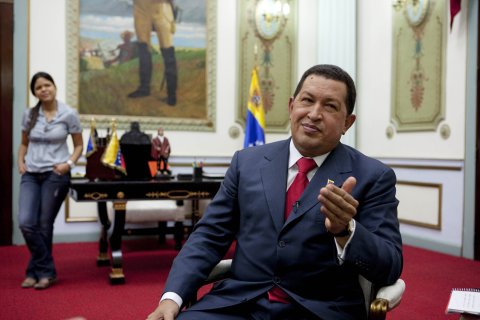
Another complaint I regularly hear among voters struck me as paradoxical: Many say they don't trust Iglesias because they find him too concerned with power. Iglesias's strategy, some say, reminds people here of another populist, a man to whom Podemos has close ties: Venezuela's late president Hugo Chávez.
The party's main connection to Venezuela is ideological. Podemos was inspired by the political philosophy of Ernesto LaClau, a post-Marxist theorist. LaClau argued that class rule is best achieved by gradually gaining influence in society (by getting elected to political office) and by identifying a clear enemy, the ruling class. If you listen to Iglesias speak, it's often aboutla casta. And like Podemos, Chávez gained traction by organizing small grassroots associations. Once elected, he redirected the country's oil proceeds to a bevy of government-administered social programs, a popular move among the country's long-neglected poor. But he also grew increasingly authoritarian, which is perhaps why some on the Spanish left found it disturbing that Iglesias once called Venezuela "one of the healthiest democracies in the world."
Podemos's ties to Venezuela aren't just ideological; they're financial. All three of the party's founders—Iglesias, Juan Carlos Monedero and Iñigo Errejón—worked as advisers to the Chávez government.
'The Problem Is You'
The party's critical challenge, observers say, lies in its transition from an Occupy-style grassroots movement to an organized political party. That evolution requires some hierarchy, and a streamlined strategy. Podemos makes its decisions with the input of the circulos, but has in recent months shifted more power to a group it calls the coordination council, whose members are chosen by Iglesias. The purpose, political observers say, is to make sure the party's message is carefully controlled so it doesn't alienate voters.
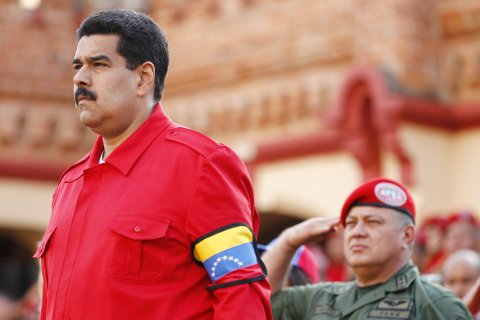
Another step the party took toward becoming more inclusive came last month, when Podemos began courting the business community, briefing banks and other companies on its economic policies. Industry honchos haven't been receptive, but the outreach suggests Iglesias isn't purely an ideologue.
Pragmatism appears to have long been part of Iglesias's philosophy. At the beginning of the Indignados, he spoke to his students about their frustration in discussing politics with their peers who hadn't read Lenin and Marx. The professor urged his students to reconsider their goals. "Can't you see that the problem is you?" he said in a debate last year. "That politics has nothing to do with being right, that politics is about succeeding?"
Political success, Iglesias argued, is about connecting your ideals with what the majority wants, which "implies riding out contradictions." To illustrate his point, he invoked Lenin, "that bald guy—a genius." In 1917, during the Russian Revolution, he offered a simple message to the Russian people, whether they were soldiers, peasants or workers, Iglesias said. "Lenin didn't talk about 'dialectical materialism.' He talked about 'bread and peace.' And that is one of the main lessons of the 20th century."
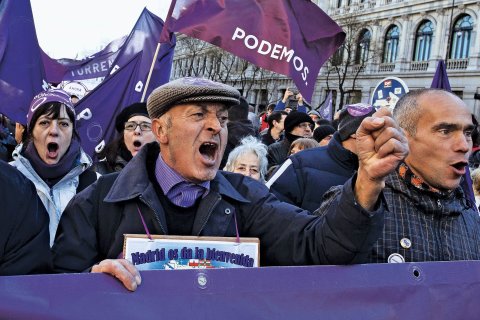
'Punishing the Party'
Whether pragmatism can help Podemos win in November's parliamentary elections is an open question. Some fear that the party's strategy is too ambiguous, and that Iglesias won't be able to reconcile the grassroots desires of the Indignados with those who want the party to operate more conventionally. Recent polls show support for Podemos may be leveling off, and some predict the party's popularity will slide further in the coming months, especially if Syriza fails to deliver in Greece.
Lola Sánchez hopes the naysayers are wrong. Her ability to afford to live in Spain depends on it. She understands the public's skepticism about Podemos. But she's confident that enough Spaniards will trust in the party's ability to improve their lot. "We've had only one year of life, and we have had to decide a lot of things," she told me. "We are still building our party and our program. But people are very clear about the kind of country they want to live in."






